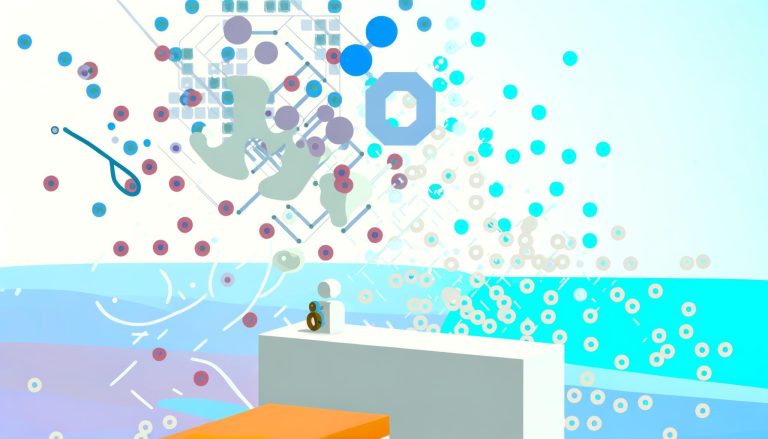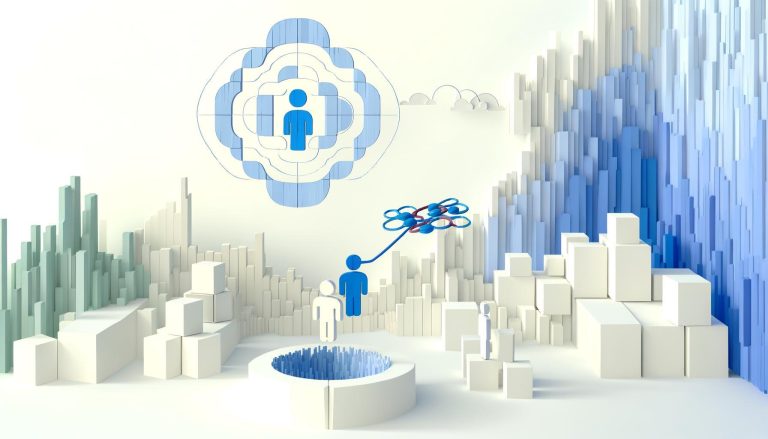As artificial intelligence (AI) continues to integrate itself into our daily lives, its role in various fields is becoming increasingly significant. One such area is the treatment of Internet Gaming Disorder (IGD). With gaming becoming an integral part of modern culture, especially among younger demographics, IGD has emerged as a growing concern. This article explores the impact of AI on treating this disorder, highlighting its potential benefits, ethical considerations, and future prospects.
Understanding Internet Gaming Disorder
Internet Gaming Disorder is characterized by a persistent and recurrent use of internet games, leading to significant impairment or distress. Symptoms may include preoccupation with games, withdrawal symptoms when not playing, unsuccessful attempts to control gaming habits, and neglect of personal life and responsibilities.
Signs and Symptoms
- Preoccupation with gaming
- Withdrawal symptoms when gaming is taken away
- Need to spend increasing amounts of time gaming
- Unsuccessful attempts to control gaming
- Loss of interest in previously enjoyed activities
- Continued gaming despite acknowledging its problems
- Deception of family members or others regarding the amount of gaming
- Use of gaming to escape or relieve negative moods
- Risking or losing a significant relationship or career opportunity
The Role of AI in Treating IGD
Artificial intelligence has made substantial inroads in healthcare, offering new ways to diagnose, treat, and manage various conditions. In the realm of IGD, AI’s capacities in data analysis, personalized treatment plans, and automated support systems present innovative solutions.
AI-Driven Diagnoses
With its ability to process vast amounts of data, AI can aid in early detection and diagnosis of IGD. By analyzing behaviors, patterns, and usage data from individuals, AI systems can identify signs of IGD long before they manifest into larger issues. This proactive approach helps in addressing the disorder at its nascent stage.
Personalized Treatment Plans
AI excels in creating personalized approaches to therapy. Through machine learning algorithms that evaluate individual gaming habits and psychological profiles, AI can recommend tailored treatment plans, prioritizing specific interventions that are most likely to be effective for each patient.
Automated Support Systems
AI-driven chatbots and virtual assistants offer continuous support to individuals coping with IGD. These systems can provide real-time counseling, monitor behavioral changes, and remind users of techniques to manage their gaming habits. Such accessibility ensures that help is available whenever needed.
Benefits of AI in Managing IGD
The integration of AI into the treatment process of IGD boasts several advantages that extend beyond traditional methods.
Consistency and Accessibility
AI systems are available around the clock, offering consistent support without the limitations of human availability. This ensures that individuals have continual access to resources and guidance, which is crucial for managing cravings and triggers associated with IGD.
Data-Driven Insights
The data-driven nature of AI allows for a deeper insight into gaming patterns and user behavior. By continuously learning and adapting, AI systems enhance the precision of treatment plans, providing a tailored experience that evolves with the individual’s progress.
Enhanced Engagement
AI can gamify the treatment process itself, incorporating interactive elements that encourage patients to engage with their therapy. This helps in maintaining interest and motivation, which are often key barriers in the treatment of addiction-related disorders.
Practical Tips for Leveraging AI in IGD Treatment
To maximize the potential of AI in managing IGD, individuals and healthcare providers can consider the following practical strategies:
Integrating Cognitive Behavioral Techniques
AI platforms can integrate cognitive behavioral therapy (CBT) techniques to help users recognize and alter their gaming-related behaviors. Encouraging users to log triggers and responses and providing feedback based on CBT principles can lead to positive behavioral changes.
Utilizing AI-Powered Apps
Leveraging AI-powered apps that focus on habit tracking and mood changes can be beneficial. These applications can help identify patterns in behavior and assist users in setting practical goals for reducing gaming time. The Zenora App, for instance, provides features such as mood and habit tracking that may help individuals monitor and manage their gaming habits effectively.
Encouraging Family Involvement
AI tools can facilitate communication between therapists and family members, enabling a collaborative approach to treatment. By providing family members with insights and strategies directly, support can be extended outside therapy sessions, creating a comprehensive support system.
Ethical Considerations and Challenges
Despite its many benefits, the use of AI in treating IGD poses several ethical considerations and challenges.
Privacy Concerns
The collection and analysis of personal data by AI systems raise privacy concerns. Establishing clear guidelines on data usage and ensuring confidentiality are paramount to maintaining trust and compliance with relevant regulations.
Reliability and Accountability
The accuracy of AI diagnoses and treatment recommendations must be meticulously monitored. It’s crucial to ensure that AI systems complement human judgment and do not replace professional insight entirely.
Potential for Over-Reliance
Reliance on AI may inadvertently diminish the role of human intuition and empathy in treatment. Balancing AI’s capabilities with human interaction is necessary to provide holistic care, particularly in mental health treatment.
The Future of AI in IGD Treatment
As technology continues to evolve, so too does the potential of AI in treating Internet Gaming Disorder. Future developments may see even more sophisticated integration of AI, such as virtual reality therapies, further enhancing patient engagement and treatment outcomes.
The Role of Interdisciplinary Collaboration
Collaboration across disciplines such as neuroscience, psychology, and computer science will be key in refining AI applications in IGD treatment. Such initiatives can lead to innovative solutions that address complex aspects of gaming disorders holistically.
Emerging Technologies
Emerging technologies, including augmented reality and machine learning advancements, offer exciting prospects for more immersive and responsive treatment options. Their integration promises to redefine how IGD and similar disorders are approached in therapeutic settings.
Conclusion
The impact of AI on treating Internet Gaming Disorder is profound and multifaceted. As AI technologies continue to advance, they hold the promise of revolutionizing how we understand, diagnose, and manage such disorders. However, it is crucial to address ethical considerations and ensure that technology enhances, rather than replaces, human intuition and empathy. By doing so, AI can be a valuable ally in helping individuals navigate and overcome the challenges posed by IGD.
For those interested in harnessing AI for personal growth and management of gaming habits, the Zenora App offers useful features that align with modern therapeutic practices, providing a comprehensive tool for tracking progress and setting goals.





